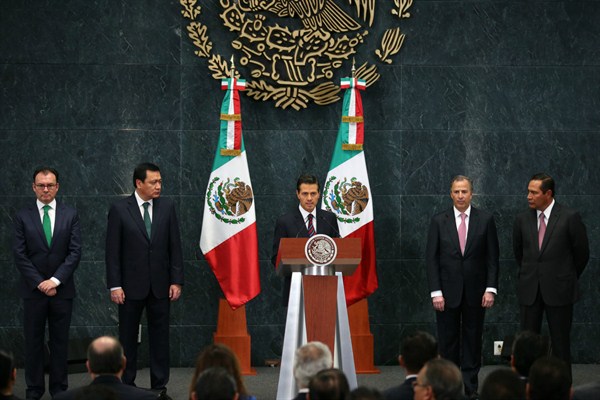On Sept. 7, Mexican President Enrique Pena Nieto announced the resignation of Finance Minister Luis Videgaray and appointed Jose Antonio Meade, a reputable technocrat, as his replacement. Since Videgaray had been instrumental in organizing Republican presidential nominee Donald Trump’s controversial visit to Mexico City late last month, most coverage framed his exit as the fallout.
But Videgaray’s resignation had more to do with a longer track record of failing to deliver on ambitious economic and structural reforms. It was the latest upheaval in Pena Nieto’s Cabinet at a time when the Mexican economy faces mediocre growth, mounting debt and a complicated international economic environment. Meade’s tenure will be no smooth ride.
Since Pena Nieto took office, Videgaray served as his closest adviser, overseeing the sweeping reforms that opened up Mexico’s energy sector for private investment; increased competition in the telecommunications industry; and raised taxes to tackle Mexico’s chronically low tax revenue. This agenda garnered international recognition for Videgaray as an avid reformer capable of propelling the long-underperforming Mexican economy.

